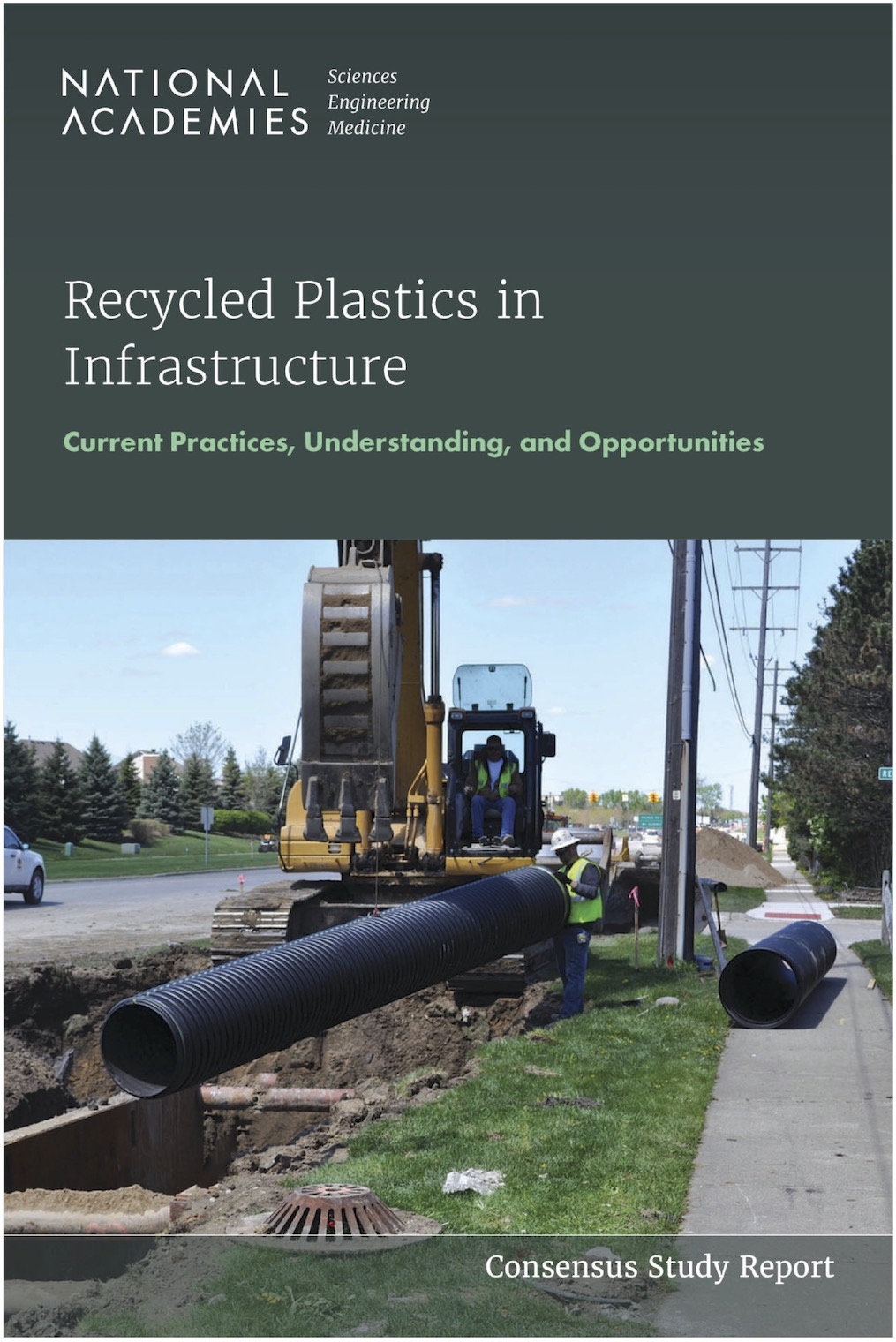Recycled Plastics in Infrastructure
The National Academy of Science (NAS) has released TRB Special Report 347: Recycled Plastics in Infrastructure: Current Practices, Understanding, and Opportunities, which emphasizes that the pursuit of plastics recycling in infrastructure depends on goals, policy, and economics, and that life cycle economic and environmental assessments should be conducted to inform policies on plastics waste reuse.
"It is in society’s economic and environmental interests to expand and standardize plastics waste collection, increase recycling, and explore new applications for plastics waste in infrastructure."
In the U.S., most plastics waste is disposed in landfills, but a significant amount also ends up as litter on land, rivers, and oceans. Today, less than 10 percent of plastics waste is recycled in the U.S. annually. The use of recycled plastics in infrastructure applications has potential to help expand the market and demand for plastics recycling. Possible uses include asphalt pavements, railroad ties, and utility poles.
Recycled plastics are an underutilized resource and action from the public sector at the federal, state, and local levels is needed to improve the plastics waste management system in the U.S. The report makes specific recommendations for how the U.S. EPA and DOT can promote and sustain a coordinated government response that includes assessments of economically and socially beneficial applications of plastics waste in infrastructure.
The full publication is available for download
National Academies
Created to advise the nation, this private nonprofit is grounded in the expertise of its three academies — the National Academy of Sciences (NAS), National Academy of Engineering (NAE), and National Academy of Medicine (NAM).
Operating under an 1863 congressional charter signed by President Lincoln, the National Academies provide independent, objective advice to inform policy with evidence, spark progress and innovation, and confront challenging issues for the benefit of society.
Transportation Research Board
TRB provides leadership in transportation improvements and innovation through trusted, timely, impartial, and evidence-based information exchange, research, and advice regarding all modes of transportation.
TRB committees, researchers, and staff are focused on advancing resilient infrastructure, exploring transformational technology, and caring for the public’s health and safety.


